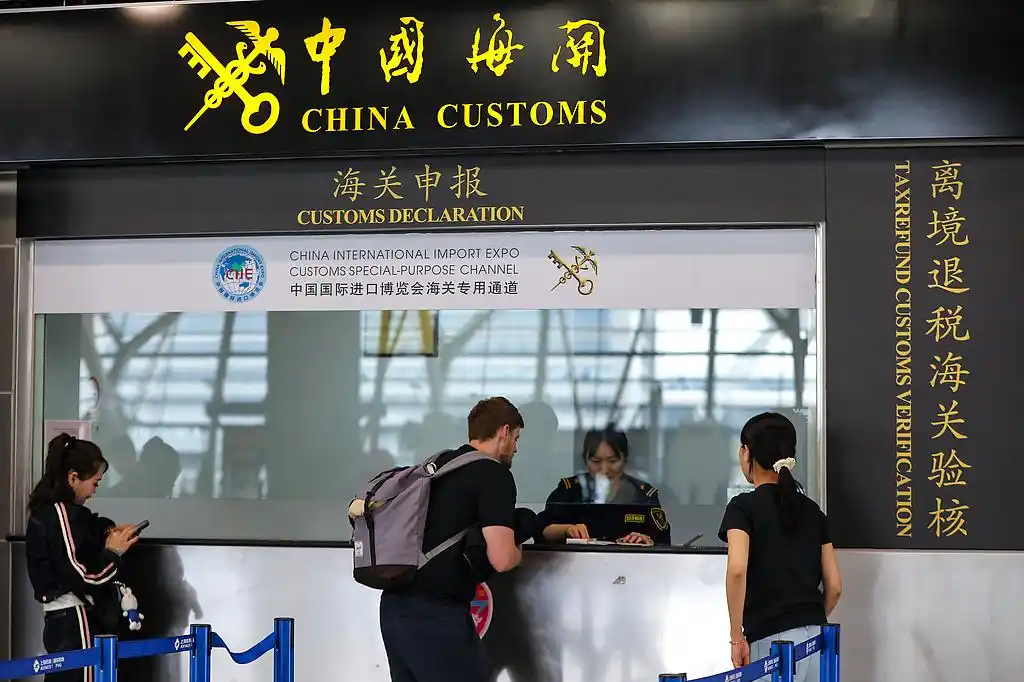E-commerce platforms eye more opportunities


Chinese e-commerce platforms are ramping up efforts to march into Latin America to cultivate new customers and rev up sales, as cross-border online marketplaces turn into important driving forces bolstering the growth of China's foreign trade amid external uncertainties.
Eyeing the enormous development potential of the Latin American e-commerce market, Chinese online retailers are providing value-for-money products to local consumers by leveraging efficient supply chain networks, and contributing to economic and trade cooperation between China and Latin America, experts said.
Temu, a cross-border e-commerce app owned by Chinese online discounter PDD Holdings, has made forays into Brazil, Chile, Colombia, Peru, Mexico, Uruguay, Ecuador, Dominica and Panama. To attract price-conscious consumers in the region, Temu offers an array of favorable policies including shopping discounts and coupons, as well as fast delivery services.
Chen Lei, chairman and co-CEO of PDD Holdings, said the company hopes to leverage the supply chain capacities it has accumulated to create a new channel that enables consumers from different countries and regions to directly purchase products from factories, providing more flexible and personalized supply chains and more cost-effective shopping experiences.
Launched in September 2022, Temu offers a wide selection of merchandise, including apparel, consumer electronics, jewelry, shoes, cosmetics and baby products at competitive prices. Most of these products are shipped directly from factories or warehouses in China.
As of January, the app's monthly active users reached 39 million in Brazil, making Temu the second-largest e-commerce platform in the country, while it has quickly become one of the most downloaded online shopping apps in Mexico since its debut in the country in 2023.
According to global research firm Statista, the number of e-commerce users in Latin America stood at 290 million in 2024, and this is expected to rise by 52 percent to more than 400 million by 2029.
The consultancy said Latin America's e-commerce sector will see an upward trajectory fueled by digitalization, improved logistics and infrastructure, and the rapid development of artificial intelligence technology reshaping online shopping worldwide.
TikTok Shop, the e-commerce marketplace of popular short-video app TikTok, which is owned by Chinese tech giant ByteDance, recently launched services in Brazil, marking a significant step in the company's expansion in the Latin American market. The platform entered the Mexican market in January.
Consumers can find and directly buy products featured in livestreaming broadcasts and short videos without leaving the platform. TikTok Shop will empower local sellers from all regions of Brazil, helping them grow by connecting their products to a large audience and handling order fulfillment in partnership with logistics providers in Brazil.
Market consultancy Mordor Intelligence predicts that the size of Brazil's e-commerce sector will rise from $52.87 billion last year to $125.68 billion in 2029, with a compound annual growth rate of 18.91 percent between 2024 and 2029. Brazil and Mexico together represent approximately two-thirds of the e-commerce market share in Latin America.
Mexico is the second-largest e-commerce market in Latin America, with its market scale expected to reach $53.97 billion by 2029, growing at a CAGR of 13.27 percent, it added.
Online fast-fashion retailer Shein has announced that it would initially invest $150 million to establish a network with thousands of textile manufacturers in Brazil, which is expected to become a manufacturing and export hub for the rest of Latin America. It plans to partner with 2,000 local manufacturers, creating around 100,000 new jobs over the next three years.
The investment would be used to provide tools and training in factories to upgrade traditional operations to match Shein's on-demand production model. By the end of 2026, local manufacturers and vendors are expected to account for almost 85 percent of all transactions made in Brazil, according to Shein.
"Latin America presents immense opportunities for Chinese cross-border e-commerce platforms aspiring to expand their footprint globally, thanks to the increasing penetration rate of internet and smartphone use, gradually improved logistics networks and the adoption of digital payment systems in the region," said Chen Tao, an analyst at the Beijing-based internet consultancy Analysys.
Chen estimates that the e-commerce industry in Peru, Colombia, Argentina and Chile will maintain double-digit growth rates in the next few years.
The younger generation prefers to buy commodities like apparel, smartphones, headphones and smartwatches online and is driving the development of e-commerce in Latin American countries, Chen added.
fanfeifei@chinadaily.com.cn




































